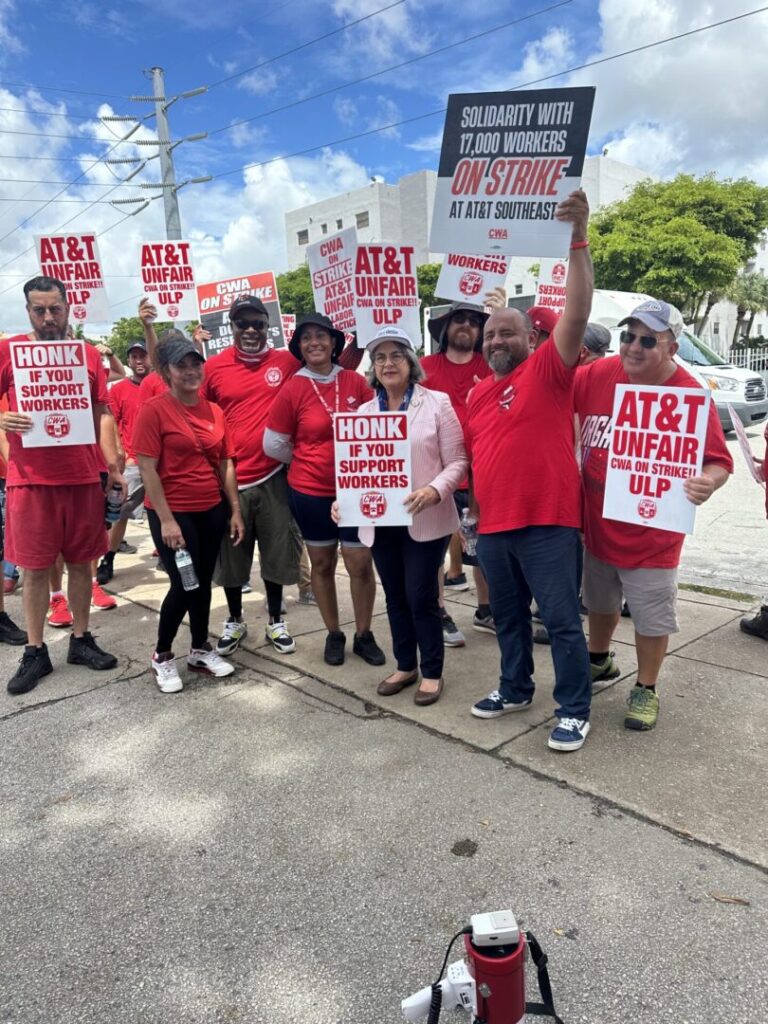
In the late 1800s in New York City, the Central Labor Union sought to introduce a radical concept to capitalism: community over rugged individualism.
On Sept. 5, 1882, the first Labor Day was created to celebrate the spirit of the working class and organize across trades. Despite the annual festivities that the first Monday of September brings to the United States, unions and labor reform have remained contentious issues both in government and among public opinion.
In Florida, the latest battle began in 2023 with the passing of Senate Bill 256. The target: public sector unions.
Senate Bill 256 aims to “require the employee organization to be recertified as the bargaining agent if the number of employees paying dues to the employee organization during the last registration period is less than 60 percent of the number of employees eligible for representation in the bargaining unit.”
The bill also prohibits the source of payment for union dues; it cannot come from employees’ salaries. Because of these stipulations, many public employees have struggled to pay dues and, as a result, unions have begun to lose their bargaining contracts.
The decertified unions can hold elections to reapply for certification. This includes being reclassified as a valid and legal union and renegotiating employer contracts. Additionally, this law requires that public sector unions report these numbers annually.
When Florida House Rep. Dean Black sponsored the bill, he spoke with Tom Hudson at The Florida Roundup on how these laws affect public sector unions such as school faculty, plant operators and municipal employees, but exempted law enforcement, correctional officers and firefighters. According to a database of public state filings provided by WLRN, the Pembroke Pines chapter of the Broward County Police Benevolent Association has only about 34% of its members paying dues, yet it is not at risk of decertification.
“We treat them differently for purposes of retirement, and all manner of things. And so, they are ordinarily treated as an entirely separate entity,” Black said. “If the union wants to exercise rights that it has under the law to engage in politics, then they can do that. But the workers ought to know how their money is being spent.”
In a prepared statement, Rusty Brown, southern director for the Freedom Foundation, a conservative labor think tank, echoed Black’s sentiments.
“What they neglect to mention is that audits are already mandatory for any union with at least one private-sector employee. This bill merely holds public-sector unions to the same transparency standards their private-sector counterparts already live up to,” Brown said.
Despite this, SB 256 has been challenged by the Florida Police Benevolent Association, the Florida Professional Firefighters, the Teamsters and the Fraternal Order of Police in addition to lawsuits by teachers unions and other public sector unions. The cases and lawsuits were largely dismissed or rejected.
Over 43,000 state employees have already lost union representation. After the largest loss in state government union representation, higher education unions are second among affected organizations.
In January 2024, the American Federation of State, County and Municipal Employees (AFSCME) filed a final order revoking certification for the University of South Florida for not meeting the 60% minimum requirement. As of April 2024, the FAMU chapter of the United Faculty of Florida has only 56.63% of members paying dues. While being above 50% was acceptable since 2018, with SB 256, these numbers put UFF-FAMU at risk of decertification. The UFF-FAMU DRS chapter has 70%, however, making them eligible for recertification.
According to the Bureau of Labor and Statistics, union representation in Florida had risen from 5.6% in 2022 to 6.1% in 2023. With the passing of this law, that percentage is predicted to decrease.
This Labor Day, labor unions statewide were emphasizing the importance of representation and the detrimental impact SB 256 and SB 1746 has had on unions that have been in effect since as early as the 1970s. (SB 1746 is a new bill recently passed by the Florida Senate earlier this year that places additional requirements on union members through mandated forms.)
The president of the UFF-FAMU, Professor Samique March-Dallas, released a statement after the chapter filed a lawsuit against the state of Florida on Aug. 23.
“A majority of the UFF-FAMU faculty have chosen to support their union by joining UFF-FAMU and paying membership dues … It is ridiculous that hard-working educators are being penalized for advocating for themselves and their students. It is ridiculous that the Legislature unilaterally gets to decide that they know better than the majority of employees in the field every day,” March-Dallas said. “We are determined to save our bargaining ability, our bargaining agreement, and our rights to a say in workplace guidance.”
For more information on the FAMU faculty union’s lawsuit or the United Faculty of Florida, visit myuff.org